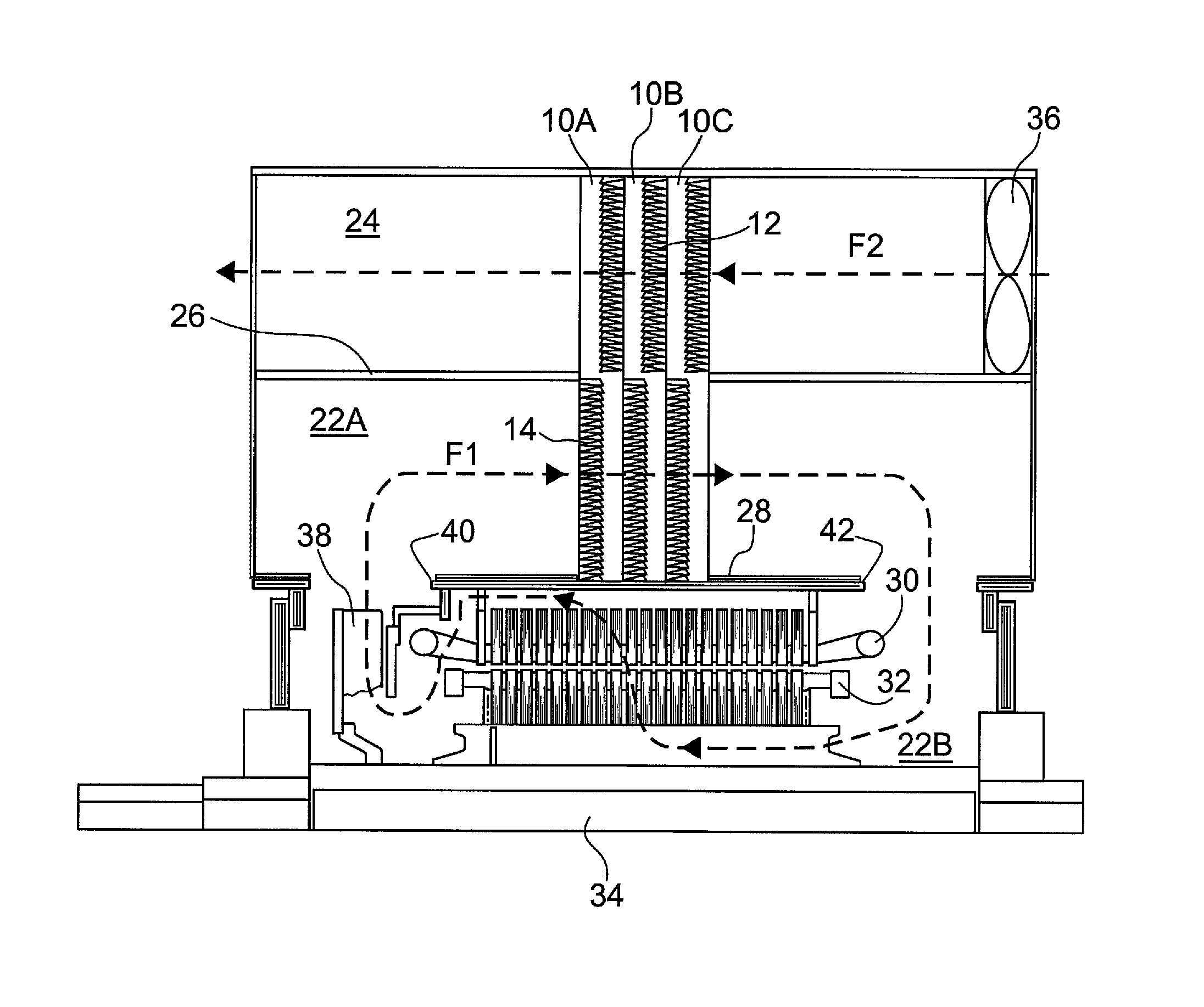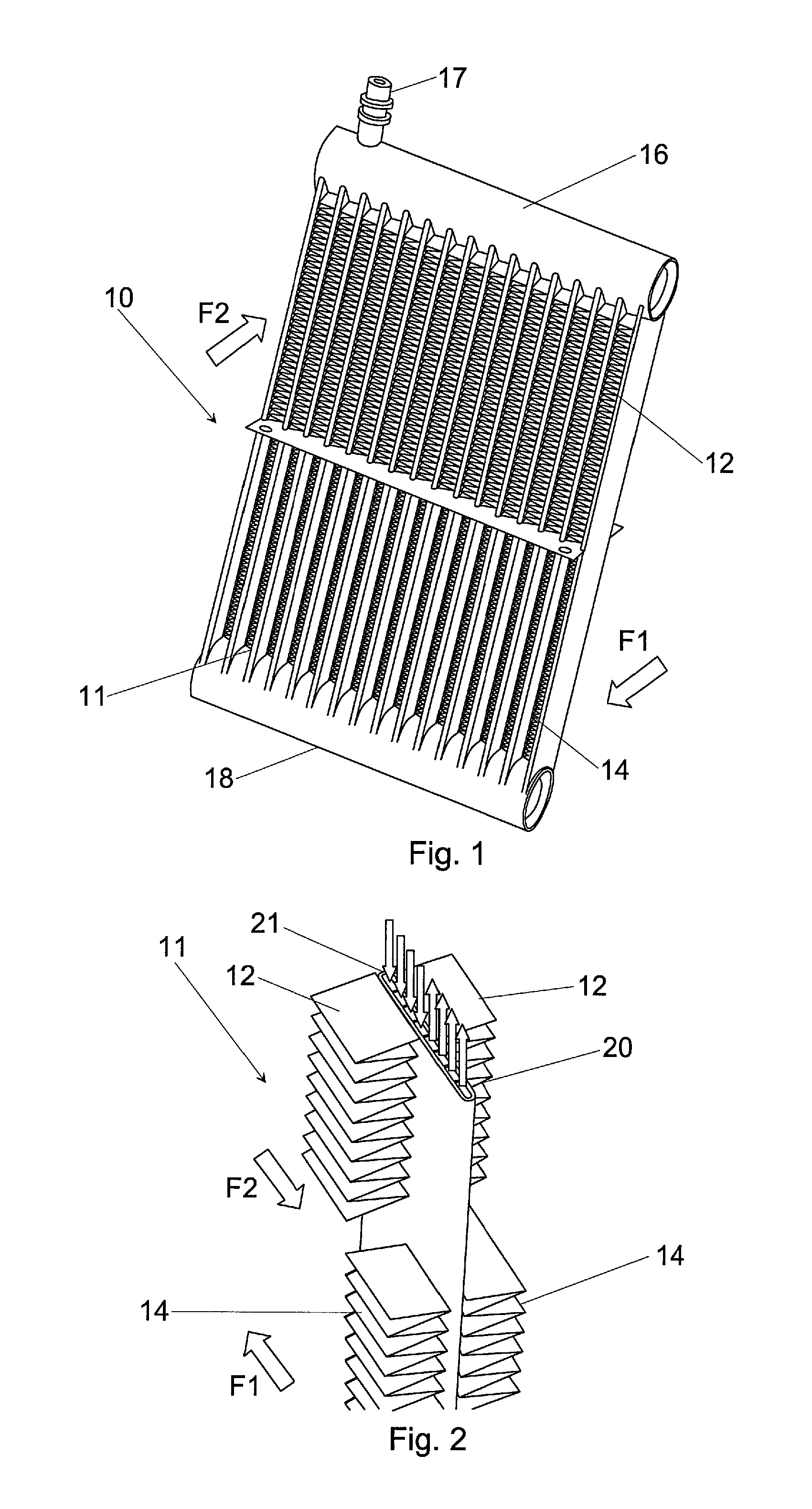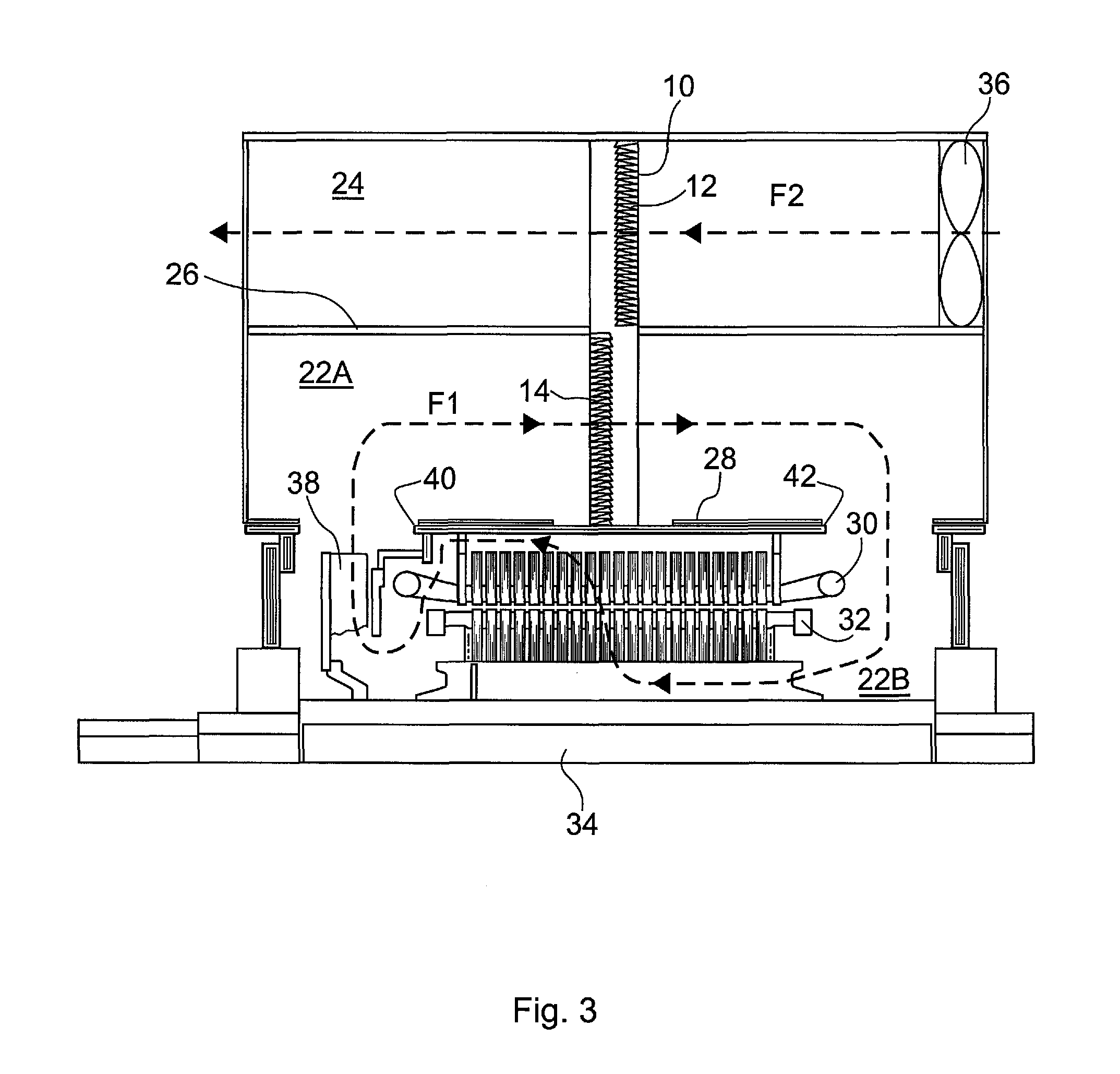Cooling of an electric machine
a technology of electric machines and cooling chambers, which is applied in the direction of magnetic circuit rotating parts, lighting and heating apparatus, magnetic circuit shape/form/construction, etc., can solve the problems of increasing the importance of cooling, the inability to work in other working environments, and the large size and bulk of electric machines such as electric motors
- Summary
- Abstract
- Description
- Claims
- Application Information
AI Technical Summary
Benefits of technology
Problems solved by technology
Method used
Image
Examples
first embodiment
[0039]A sectional view of such an electric machine with heat exchanging unit according to the invention is schematically shown in FIG. 3.
[0040]The electric machine here includes a closed chamber 22 in which the stator 30 and the rotor 32 are provided. The chamber is here furthermore a high Ingress Protection index enclosure. In this first embodiment of the invention the chamber is also made up of a first and a second section 22A and 22B being separated by a partition 28. The partition 28 is here provided with a first opening 40 and with a second opening 42 in order to let the sections communicate with each other. These openings are vertically separated from each other. A part of the heat exchanging unit 10, in this embodiment the lower half, is provided in the first section 22A between the first and second openings, while the stator and rotor 30 and 32 are provided in the second section 22B. The first section 22A is therefore also a cooling section and the second section, in which o...
second embodiment
[0052]In the invention this modular realization of the heat exchanging unit is used further.
[0053]This is exemplified in FIG. 4, which shows a sectional view through an electric machine that is similar to the machine in FIG. 3. The only difference here is the heat exchanging unit. In this case the heat exchanging unit is made up of a number of heat exchanging modules 10A, 10B, 10C, each module provided in the same way as the heat exchanging unit described in relation to FIGS. 1 and 2. These modules 10A, 10B, 10C are here stacked after each other in the first section 22A of the chamber, i.e. in a direction from the first opening 40 towards the second opening 42 of the partition 28. This also means that they are placed after each other in the direction of flow of the first fluid F1 in the first section 22A of the chamber. Each module furthermore has the same orientation as the heat exchanging unit of the first embodiment. Also here there is furthermore a single opening in the wall 26 ...
third embodiment
[0057]FIG. 5 shows a sectional view through a part of an electric machine according to the invention where symmetric cooling is used.
[0058]In case of symmetric cooling according to this third embodiment there is, in addition to a first heat exchanging unit 10, also a second heat exchanging unit 44. Furthermore apart from the first opening (not shown) and second opening 42, there is here a third opening 48 in the partition. In this embodiment the first opening is provided centrally in the partition and the first fan (not shown) placed for forcing the first fluid F1 into the first section 22A of the chamber via this first opening. Here the stator and rotor may be placed around this opening. The second and third opening 42 and 48 are then placed peripherally in the chamber and here on opposite sides of the first opening. The first heat exchanging unit 10 is then placed and fixed to the partition between the first opening and the second opening 42 in the first section 22A of the chamber...
PUM
 Login to View More
Login to View More Abstract
Description
Claims
Application Information
 Login to View More
Login to View More - R&D
- Intellectual Property
- Life Sciences
- Materials
- Tech Scout
- Unparalleled Data Quality
- Higher Quality Content
- 60% Fewer Hallucinations
Browse by: Latest US Patents, China's latest patents, Technical Efficacy Thesaurus, Application Domain, Technology Topic, Popular Technical Reports.
© 2025 PatSnap. All rights reserved.Legal|Privacy policy|Modern Slavery Act Transparency Statement|Sitemap|About US| Contact US: help@patsnap.com



